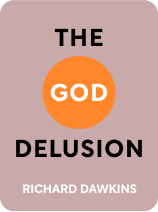

This article is an excerpt from the Shortform book guide to "The God Delusion" by Richard Dawkins. Shortform has the world's best summaries and analyses of books you should be reading.
Like this article? Sign up for a free trial here .
What is the ontological argument? Why is this argument flawed in proving God’s existence?
The ontological argument says that since God is perfect, there can be no doubting God and his existence. Of course, this argument falls apart quickly if you don’t believe in God in the first place.
Read more about the ontological argument and what it means.
The Ontological Argument
There is a class of theological arguments known as a priori arguments. These arguments exist independently of observation and are formulated entirely through abstract thought experiments.
The most famous a priori argument for God is known as the ontological argument, first promulgated by the English monk St. Anselm of Canterbury, who lived primarily in the 11th century.
The basic premise of the argument is as follows:
- God is perfect; therefore, nothing can be imagined that is greater than God.
- Such a great being that actually exists must be greater than a being that does not exist, because existence is superior to non-existence.
- If God existed only in the mind (as atheists believe), one could imagine an even greater being—namely, a God that existed in reality, not just in the mind.
- Thus, there is a logical contradiction, because it should be impossible to imagine something greater than God.
- The only way to resolve this contradiction is to accept that God does exist in reality, not just in the mind.
The basic weakness of this argument (as was pointed out by 18th-century philosophers like Immanuel Kant and David Hume) is that it proceeds from false premises. The argument falls apart if one does not accept the idea of a perfect God in the first place. And, indeed, atheists do not accept this starting premise. Likewise, the ontological argument suffers from the logical fallacy known as begging the question—in which the premise of an argument already assumes the truth of its conclusion.
Beyond these weaknesses, there is no reason to accept the other pillar of the argument: that an existing God is by definition greater than a non-existent God. By inverting Anselm’s slippery logic, you could argue that a non-existent being is greater than an existing one. A God who overcame the handicap of non-existence to create the universe is surely a greater being than one who created the universe while existing!

———End of Preview———
Like what you just read? Read the rest of the world's best book summary and analysis of Richard Dawkins's "The God Delusion" at Shortform .
Here's what you'll find in our full The God Delusion summary :
- Why Dawkins thinks religion has exerted a harmful influence on human society
- How Dawkins concludes that the existence of God is unlikely
- The 3 arguments that challenge the existence of God






